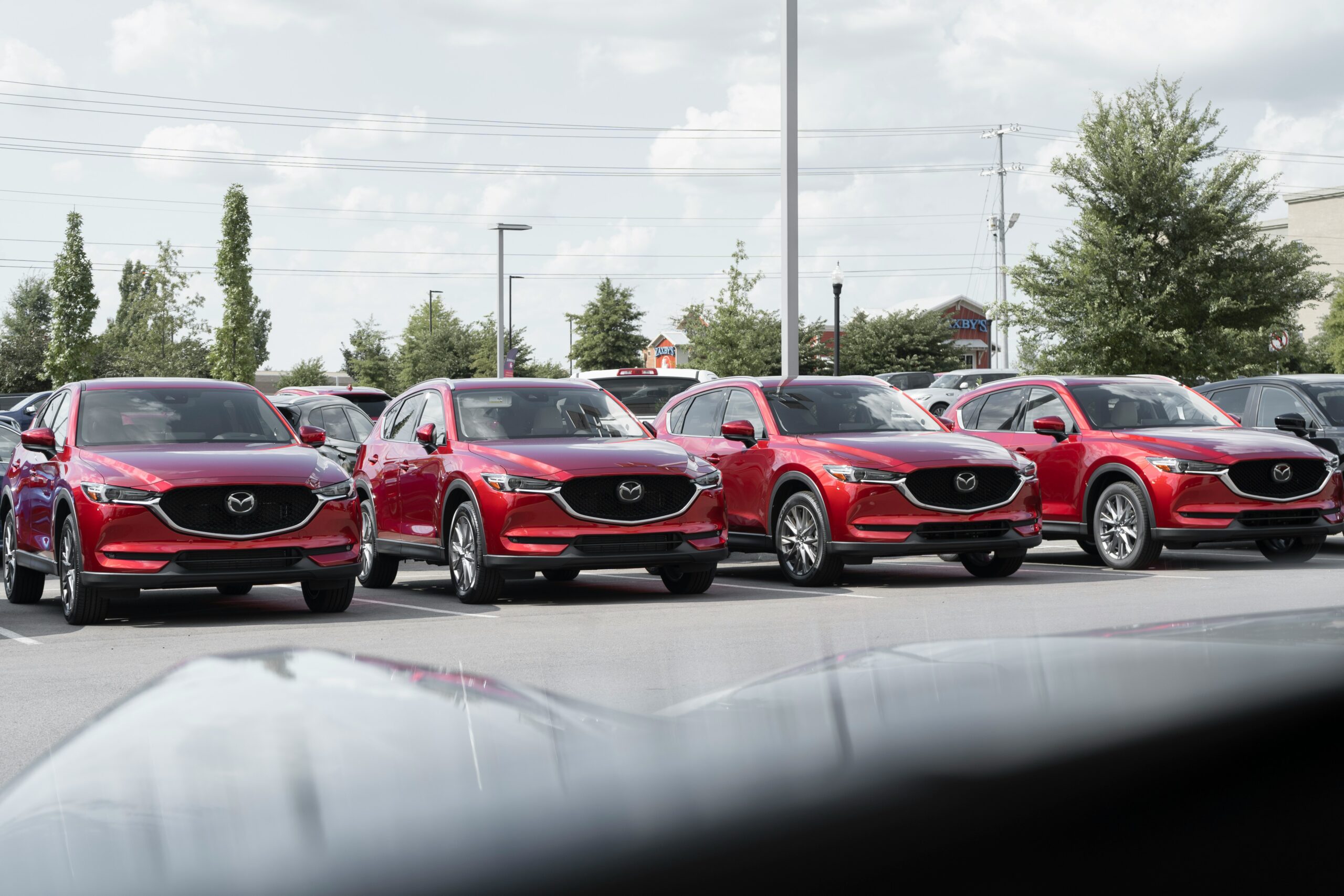Before buying a car, drivers can either add their new vehicle to an existing policy or purchase a new insurance policy. In both scenarios, you’ll need to provide the new vehicle’s identification number (VIN), make, model, and year.
Do you have to have insurance before buying a car?
You don’t technically need to have insurance before buying a car. But this is only a technicality, as you will need to have it to legally drive the car home if you don’t already have existing insurance coverage.
If you currently have an auto insurance policy, you generally have a short grace period of around 30 days or less to inform your insurance carrier of the policy update for your new vehicle.
If you’re buying from a dealership, expect to show proof of insurance before they release the car to you. Modern dealerships will generally verify your policy using insurance verification software or a standard phone call, so it’s ideal to have a policy in place to streamline the buying process.
For private sellers, there probably won’t be a formal check — but to stay in legal compliance in most states, you’ll want to cover your bases with insurance before getting behind the wheel.
It’s possible to get car insurance before buying a car
Whether you’re in the market to purchase a vehicle for yourself, your teen driver, or for occupational purposes, you will need a car insurance policy. To find the best rates for your individual situation, it’s best to start shopping for a new auto insurance policy at least one week in advance. This way, it gives you time to compare prices, secure the coverage you need, and iron out any other details.
New car grace period: When you purchase a new car—whether it’s from a dealership or a private seller—most insurance companies will provide you with a 7-30 day grace period to add your policy to your existing coverage. You might even receive a multi-car discount.
The easiest way to buy car insurance before buying a car
When buying a car insurance policy, you can either source quotes independently, partner with an insurance agent, or connect with a licensed broker like Jerry. With the Jerry app, you can search for car insurance quotes and purchase policies all from the comfort of your home. Here’s how.
1. Gather the information you need
You can’t buy auto insurance without knowing your car’s:
- Make, model, and year.
- Odometer mileage.
- Vehicle identification number (VIN).
You’ll also need the information of every person of eligible driving age in your household, including their legal name, birth date, social security number, and driver’s license number. Keep in mind that the driving record of all drivers added to your policy will impact your final rate.
2. Find the insurance coverage you need
Next, you need to choose your auto insurance coverage. This includes what type of coverage you prefer, the amount of coverage you need, and any additional coverage options.
First things first: You will likely need to meet your state minimum car insurance requirements before you can register or drive your new car. While this policy type comes with both bodily injury liability and property damage liability coverage, the total coverage limits required will vary by state.
When shopping for car insurance, it’s important to remember that not all providers calculate rates the same, meaning that your total cost will likely be different from one company to the next.
Here’s a look at how the average minimum rate changes across top insurance companies across the country:
|
Insurance Company
|
Avg Monthly Cost (Min. Coverage)
|
|---|---|
| Aspire Advantage | $94 |
| Mercury | $110 |
| Bluefire | $111 |
| Anchor General | $121 |
| Aspen | $124 |
| Commonwealth Insurance | $127 |
| Safeco | $128 |
| Trexis | $137 |
| Freedom | $144 |
| National General | $158 |
While liability insurance is light on your wallet, it’s unlikely to meet your insurance needs over time. The state minimum coverage only covers medical expenses and property damage for third parties — not your own. As such, most drivers will benefit from a full coverage policy.Besides the state minimum coverage, it generally also comes with collision insurance and comprehensive coverage, which cover your expenses in the event of an at-fault car accident or theft.
Here’s how much a full coverage policy may cost with different insurers:
|
Insurance Company
|
Avg Monthly Cost (Full Coverage)
|
|---|---|
| Grange | $122 |
| Freedom | $204 |
| Aspire Advantage | $221 |
| Safeco | $249 |
| Bluefire | $250 |
| Mercury | $259 |
| Progressive | $268 |
| Anchor General | $269 |
| First Acceptance | $307 |
| Commonwealth Insurance | $316 |
Along with a full coverage policy, drivers should also consider increasing their liability limits beyond the state requirements. Most experts recommend limits of 50/100/50 or 100/300/100 to protect your assets and future income—however, it’s entirely dependent on your financial situation.
KEEP IN MIND
If you’re leasing or financing a new vehicle, most car dealerships will require you to purchase a full coverage policy to cover any damages. With a car loan, it may be wise to also invest in gap insurance and a higher deductible in the event of a total loss.
3. Shop for car insurance
Cost is still an important factor, especially if you’re a first time buyer or a new driver. Below, you can see pricing for various insurance providers broken down into whether they have full coverage or not.
|
Insurance Company
|
Avg Monthly Quote
|
Has Full Coverage
|
|---|---|---|
| Aspire Advantage | $94 | No |
| Aspire Advantage | $221 | Yes |
| Bluefire | $111 | No |
| Bluefire | $250 | Yes |
| Mercury | $110 | No |
| Mercury | $259 | Yes |
| Safeco | $128 | No |
| Safeco | $249 | Yes |
While it can be time consuming to shop around for the right insurance policy, the Jerry app makes the process easy by comparing rates from dozens of top insurers in your area, all customized to your unique driver profile.
The savings also don’t stop once you’ve secured a policy. Even after you’re insured and have your vehicle in the driveway, you can still save by shopping for car insurance with Jerry every six months.
4. Apply any discounts for additional savings
Most providers offer car insurance discounts to help drivers continue to save on current policy costs. Here are some of the most common options:
- Good driver: Drivers who maintain a clean driving record or remain accident-free can earn savings.
- Good student: If you’re a student buying a new car, you can offset the cost of new car insurance by maintaining a B average.
- Paid in full: If you want to avoid monthly bills, consider paying your premium in full. Not only can you potentially get a sizeable discount, but you may also qualify for a refund if you opt out of your policy early.
- Multi-vehicle: If your household has another vehicle, you can lower your monthly premiums by putting your new car under the same policy.
Once you know which discounts you’re eligible for, add them to your profile in the Jerry app and re-run quotes. You may see your rates lower!
How long does it take to get car insurance?
Buying a car can be a long process, and adding insurance shopping to the list can make it feel even longer.
While it’s advised that drivers shop for car insurance at least a week prior, Jerry can help you find and purchase a same day policy with some of the top insurers in your area. The entire process, from quoting to securing a policy, takes approximately one to two hours.
FAQ
-
How soon after buying a car do I need insurance?
-
Do you need insurance to buy a car from a private seller?
-
Can I drive a car I just bought without insurance?









